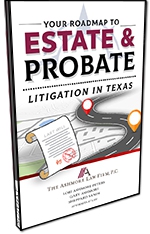.jpg)
There are many thankless jobs out there, however, one such job that people truly don’t understand until they are thrust into it is the job of an Independent Executor. This job can be extremely difficult and time-consuming, or can run rather smoothly BUT either way it is still a thankless job.
If you are one of the responsible ones out there, you should already have your estate plan and more particularly your Will completed and signed. If you want to be responsible, then hopefully you are in the process of taking care of completing, and signing your Will. Those of you who want to remain irresponsible, stop reading and move on to something else.
As you review or contemplate preparing your Will there are many things you must consider. Although an extremely important part of your Will is to determine who you want to receive your assets, in many instances an even more important consideration that must be made is who to appoint as your Independent Executor.
Your Independent Executor is responsible for collecting all of your assets and properly distributing them. Sounds pretty easy, right? WRONG! There are many things your Independent Executor should know in order to make sure they fulfill their position properly. Your Independent Executor can be personally liable to all of your beneficiaries under the Will, to who you are leaving assets to, if they do not do their job the right way.
Below are 9 of the most common mistakes your Independent Executor can make.
Filing the wrong Will.
Too many times, family members will grab the first Will they find and take that to be “it,” without continuing their search to make sure there isn’t a later dated Will.
Failing to correctly identify the property as separate or community property.
If there is any potential conflict between any of the beneficiaries, it is imperative that the Independent Executor correctly identify all of the assets to ensure the proper distribution is made.
Failing to properly identify exempt property.
The Independent Executor too often begins distributing the estate without understanding there may be some property that is exempt, meaning creditors cannot look to certain properties for payment of the debt. In addition, a spouse or minor child may be entitled to certain property even if the Will states otherwise.
Making distributions too early.
Independent Executors have a tendency to want to quickly collect the assets of the estate and make distributions and be done with their job. If distributions are made too early, the Independent Executor could be held personally liable if they did not follow the correct process. Unfortunately, we have found once the money is distributed to the beneficiaries, they are not giving it back.
Failing to properly utilize the Family Allowance.
Regardless of what a Will may say, a surviving spouse, minor children, and/or incapacitated adult children may be entitled to a family allowance for their maintenance for one year from the date of the decedent’s death.
Failing to use the proper legal notices to creditors.
This mistake goes hand in hand with number 7. There are legal notices that must be sent out to any creditor of the estate. Furthermore, there are certain property creditors cannot look to for payment of the decedent’s debt. If these legal notices are not followed, an Independent Executor could find themselves liable for any financial harm to the estate.
Paying creditors too early.
Not all creditors are treated equally. Depending on the size of the estate, some creditors may not ever get paid. If an Independent Executor pays a creditor too early, they could be found negligent and personally liable to the estate.
Failing to properly and timely file the 706 Federal Estate Tax Return.
Form 706 is filed when someone dies to let the IRS know what assets are in the estate and to determine if any estate taxes are due and owed. Even though an estate may not be large enough to require the payment of an estate tax, failure to properly and timely file the 706 Federal Estate Tax Return could be a detriment to the estate and the beneficiaries. If this occurs, the Independent Executor could be found negligent and held personally liable for their negligence.
Failing to keep beneficiaries informed.
An Independent Executor must keep all beneficiaries informed. If an Independent Executor is also a beneficiary under the Will, they must act in the best interest of the estate and not in their personal best interest.
As you can see, when it comes time for you to select who should serve as your independent Executor, careful thought and consideration must be given. It is a very important job with many moving parts depending on the size of your estate and the type of assets you may have.
The bottom line is to make sure you appoint an Independent Executor who you trust completely and who is responsible. It is also important that your Independent Executor understand their role so that they can retain a qualified probate attorney. There are many attorneys out there who say they handle probate matters, but as you can see from this article they must have a complete and thorough knowledge of the probate process and the dos and don’ts of how to represent an Independent Executor.
Do You Need To Speak With An Experienced Probate Lawyer In The Dallas Area?
If you need to speak to an experienced probate lawyer please contact us online or call our Dallas office directly at 214.559.7202. We help clients throughout the Dallas area with all of their probate needs and look forward to helping you.


